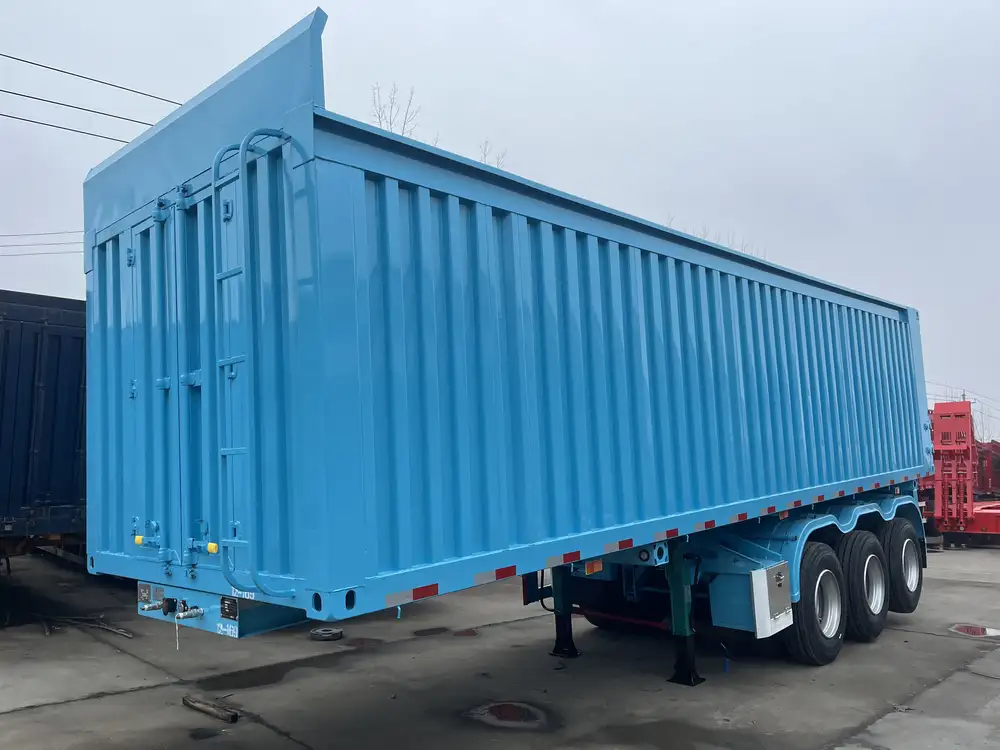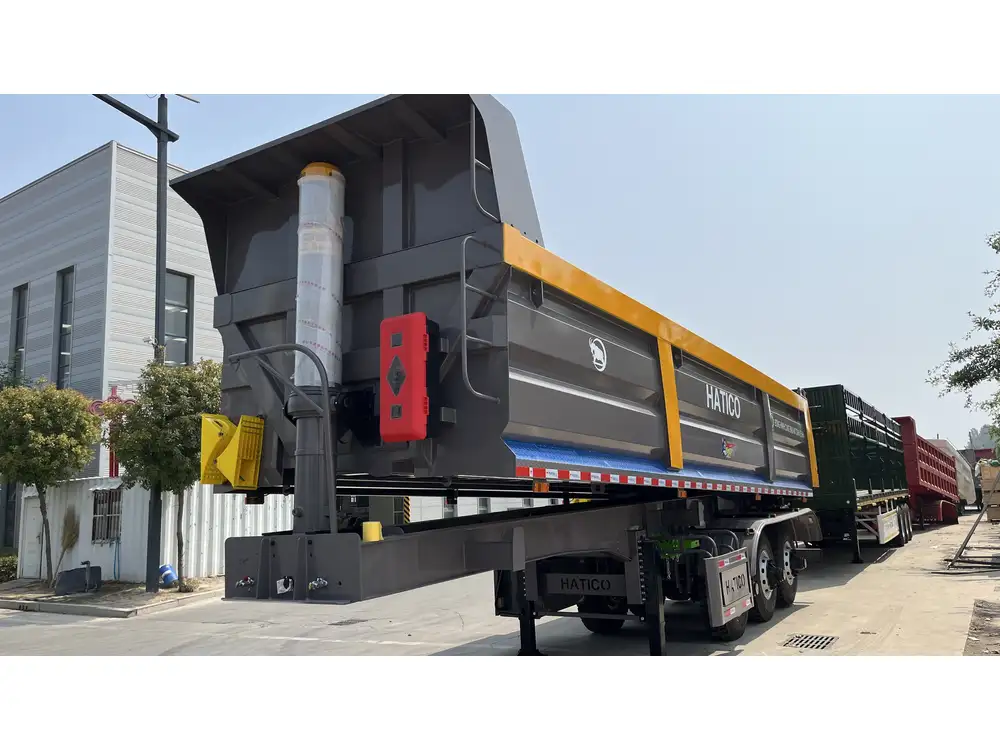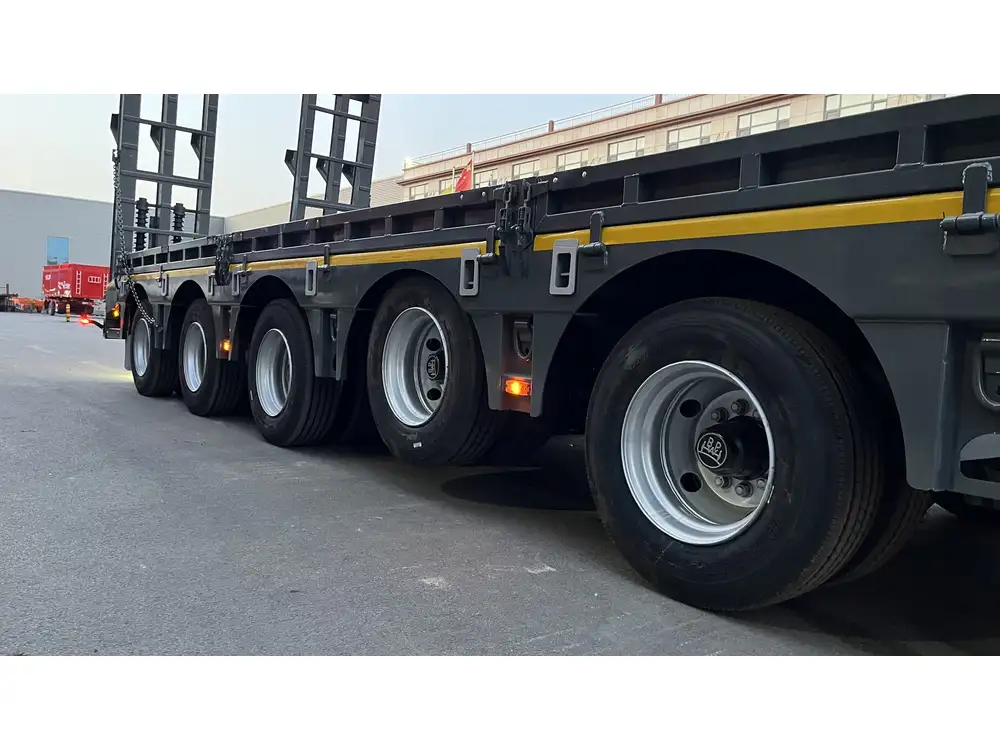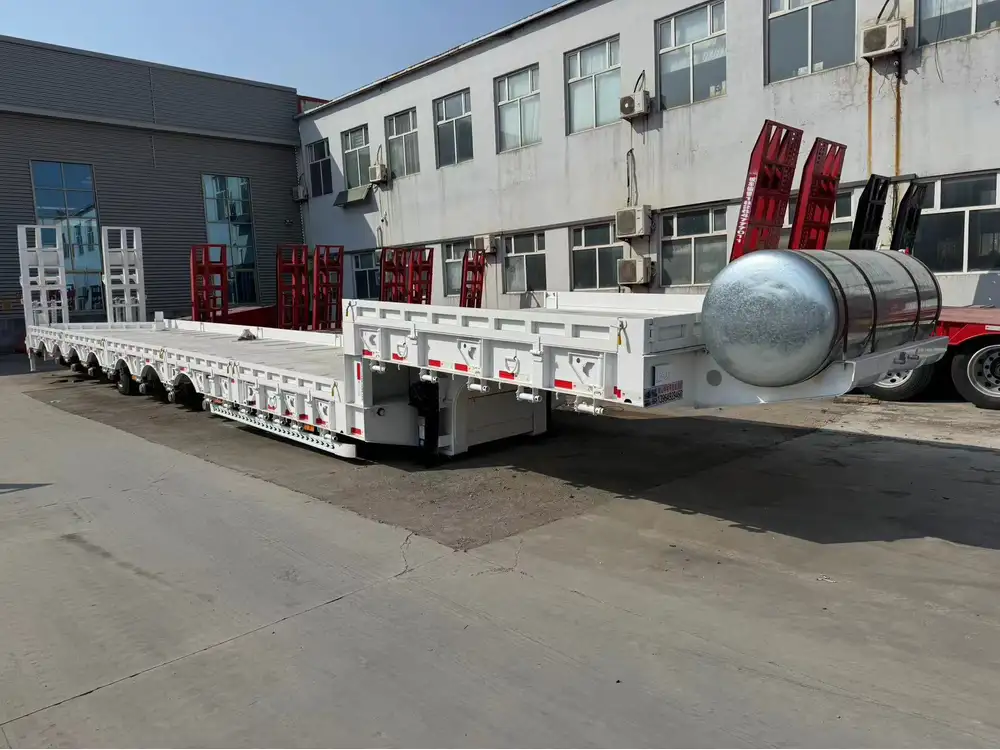Purchasing a dump trailer can be a transformative decision for contractors, landscapers, and DIY enthusiasts alike. Perhaps you’re interested in increasing your hauling capacity, maximizing efficiency on the job site, or simply upgrading your current equipment. In this comprehensive guide, we will navigate the diverse landscape of dump trailers, offering insights that will empower you to make an informed purchase decision.
Understanding Dump Trailers: What Are They?
Dump trailers are specialized trailers designed to transport and unload bulk materials. Typically featuring hydraulic lifts, these trailers can efficiently dump their contents with ease, eliminating the need for manual unloading.
Types of Dump Trailers
Dump trailers come in various shapes and sizes, catering to a multitude of needs. Here are the most common types:
| Type | Capacity | Ideal Use | Features |
|---|---|---|---|
| Single Axle | Up to 7,000 lbs | Light to moderate hauling | Compact, maneuverable, affordable |
| Tandem Axle | 7,000 – 14,000 lbs | General construction, landscaping | Stable, high load capacity, better weight distribution |
| Tri-Axle | 15,000+ lbs | Heavy-duty projects | Exceptional stability, ideal for large volumes |
| Gooseneck | Varies | Heavy loads, long-distance transport | Enhanced towing stability, larger payload capacity |
By understanding these distinctions, you can select the best option tailored to your needs.

Key Factors to Consider When Buying a Dump Trailer
When considering how to buy the perfect dump trailer, several crucial factors come into play:
1. Payload Capacity
Understanding the payload capacity is paramount. This denotes how much weight the trailer can safely transport. Exceeding this limit risks damage to the trailer and violates safety regulations.
2. Trailer Size and Dimensions
Dump trailers come in various dimensions. Ensure that your choice fits not just your payload requirements but also your storage limitations when not in use. For instance:
- Standard Sizes: Ranging from 5 to 14 feet in length.
- Height and Width: These can affect how materials can be loaded and unloaded, especially in tight spaces.

3. Axle Configuration
The number of axles significantly impacts stability and load carrying capacity. More axles mean better weight distribution, which is particularly important if you intend to haul heavy materials.
4. Material and Build Quality
Most dump trailers are constructed from either steel or aluminum. Steel offers durability and strength, while aluminum is lighter and has higher corrosion resistance. Depending on your usage, you might prefer one over the other.
5. Hydraulic System Quality
The hydraulic lift mechanism is a central feature. Analyze its efficiency and reliability—poor hydraulic performance can lead to inefficient unloading or even accidents.

6. Safety Features
Look for trailers equipped with safety features such as:
- Brakes: Electric or hydraulic brakes enhance safety during towing.
- Reflectors and Lights: Essential for visibility, especially during nighttime operations.
7. Price Range
Establishing a budget before exploring options is crucial. While it may be tempting to opt for the cheapest option, consider long-term durability and performance. Often, investing a little more upfront can yield substantial benefits down the line.
Researching Brands and Manufacturers
Before making a purchase, conduct thorough research on various brands. Some reputable manufacturers include:
- Big Tex Trailers: Known for robust designs and a vast range of models.
- Load Trail: Offers customizable options and exemplary warranties.
- Iron Bull Trailers: Renowned for their durability and strong build.

Manufacturer Reputation and Reviews
Check customer reviews, ratings, and recommendations. Websites such as Trailers.com or Yelp can offer insights into the experiences of other buyers.
Where to Buy a Dump Trailer
1. Dealerships
Purchasing from a reputable dealership can provide you with firsthand experience. They offer new trailers and often provide warranties and service packages.

2. Online Retailers
Online platforms, such as eBay or Craigslist, offer a broad selection of new and used trailers. Be cautious and evaluate the seller’s credibility.
3. Auction Houses
Look for auction opportunities. This route can yield excellent deals on high-quality equipment if you’re willing to do your due diligence.
4. Rental Outlets
Consider renting first. Many rental companies offer the option to purchase after a rental period, which allows you to test a trailer’s functionality.

Financing Options for Your Dump Trailer
Financing a dump trailer can alleviate the upfront financial burden. Here are some realistic options:
| Financing Option | Details |
|---|---|
| Dealer Financing | Many dealers offer in-house finance options with competitive rates. |
| Banks and Credit Unions | Traditional lending options usually provide lower interest but require good credit. |
| Equipment Financing Companies | Specialized lenders often cater to heavy-duty equipment like dump trailers. |
Lease vs. Buy
Consider whether leasing or buying makes more sense for your situation. Leasing may allow you access to newer models without the burden of ownership costs, while purchasing offers long-term advantages.
Maintaining Your Dump Trailer
Owning a dump trailer means committing to maintenance to ensure longevity and performance. Important maintenance tips include:
- Regular Inspections: Check for structural integrity, including the frame, bed, and hydraulic systems.
- Tire Maintenance: Ensure tires are inflated properly and have sufficient tread.
- Hydraulic System Care: Inspect hydraulic fluids regularly to avoid leaks and ensure optimal function.
- Cleaning: Keeping your trailer clean helps prevent rust and other forms of deterioration.

Seasonal Maintenance
Be particularly vigilant about maintenance before the peak usage seasons. For example, if you use your trailer often for landscaping in spring, prepare it for that workload beforehand.
Conclusion: Making the Right Choice
Buying a dump trailer is a decision not to be taken lightly. It requires a comprehensive evaluation of your specific needs, potential uses, and budget. Armed with this guide, you are better equipped to navigate the multitude of options available in the market. Remember, focusing on key factors such as payload capacity, safety features, and maintenance will lead to successful ownership and operation.
By meticulously following the steps outlined above, you can confidently step into the world of dump trailer ownership, ready to tackle any job with efficiency and ease. Whether you are hauling gravel, soil, waste, or equipment, the right dump trailer is an invaluable asset that paves the way for success in your enterprise.



